Across Australia, tens of thousands of Indigenous and non-Indigenous people have marked January 26 by attending 'Invasion Day' events, acknowledging the history and struggles of Australia’s first people.
In Melbourne alone, estimates put the number of attendees at the march against Australia Day at more than 10,000 - while organisers estimated that there was closer to 80,000.
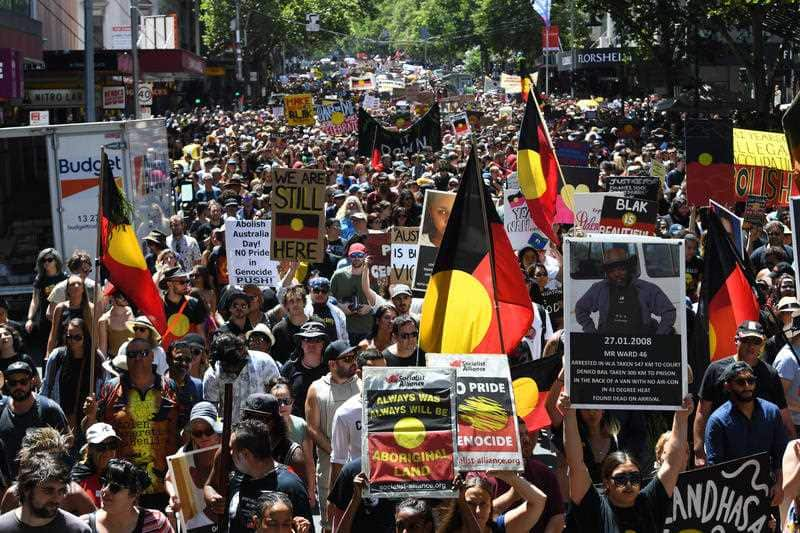
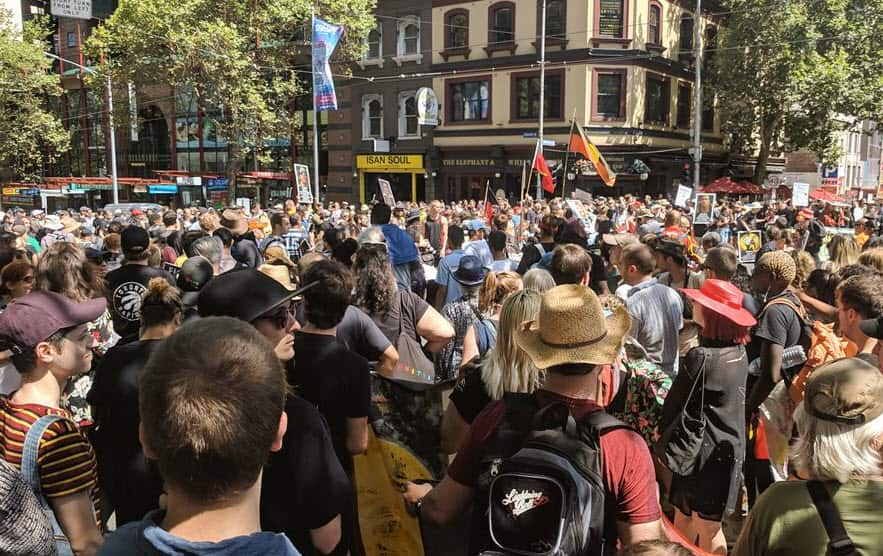
They gathered outside the Victorian parliament house for speeches, just 500 metres from the route of the official Australia Day parade, before making their way towards Flinders Street Station.
Outrage over Indigenous deaths in custody underpinned much of the protest, with marchers holding posters with photos of victims.
As they made their way through the city, protesters chanted "always was, always will be Aboriginal land" and "no pride in genocide" before being temporarily stopped by Victoria Police, eliciting calls of "shame" from the crowd.
After arriving at Flinders Street, the massive crowd staged a sit-in, flooding the square in front of the station.
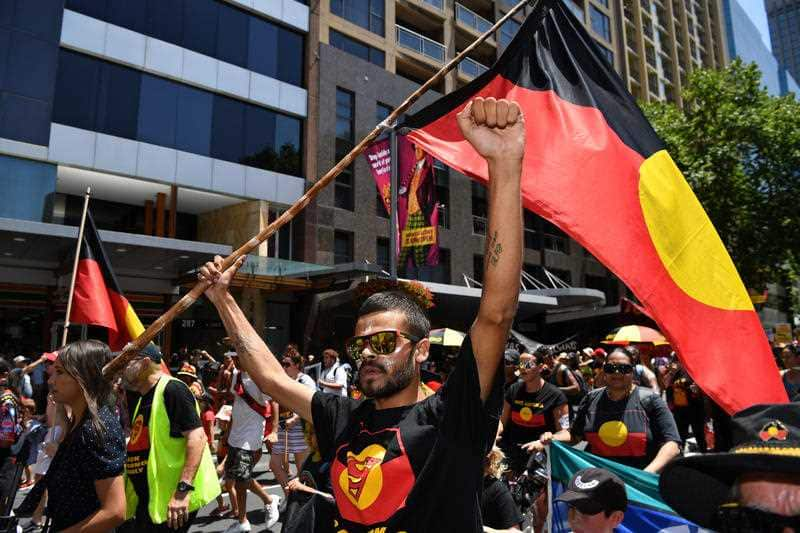
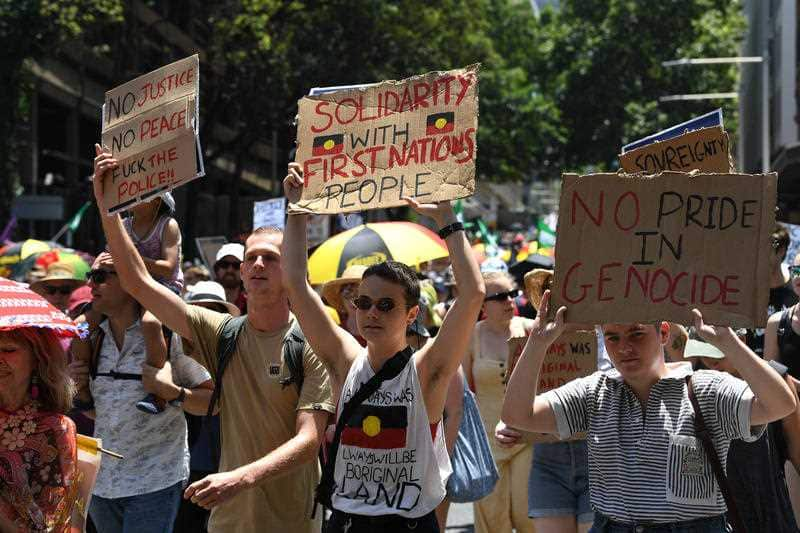
Meanwhile, Indigenous activists rallied a multicultural mix of supporters in Sydney's Hyde Park, demanding the government change the date.
"We don't need to change the date, we need to change the country," Greens NSW MP David Shoebridge told the crowd on Saturday.
Gomeroi elder Sue-Ellen Tighe, who leads anti-forced adoption group Grandmothers Against Removals, argued that following the 2008 apology by former prime minister Kevin Rudd to the stolen generation, the forced removal of Indigenous children jumped 400 per cent.
"We are not our politicians' legacies," Ms Tighe said, to cheers from the crowd.
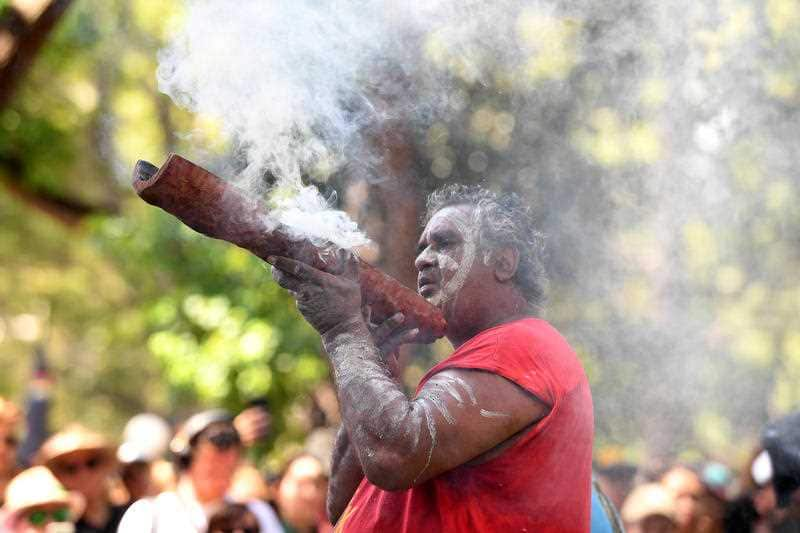
"Our generations and generations of the past were victims of this. I'm here in 2019 again saying our removal rates are above anywhere else in the world."
Led by local community elders, the protesters stretched three city blocks as they marched from the CBD to Victoria Park in Camperdown, where the Yabun Festival - the largest one-day gathering of Aboriginal and Torres Strait Islander culture in Australia - was taking place.
In Canberra, hundreds of marchers wearing red, yellow and black chanted "no more genocide, end the war" as they made their way across the Commonwealth Bridge towards the Aboriginal Tent Embassy at Parliament House.
This year, the theme of the marches went beyond changing the date - they called for an end to Australia Day celebrations while Indigenous Australians remain dispossessed. The rallies were set to coincide with the official Australia Day parades and flag raising in Canberra and other capital cities.
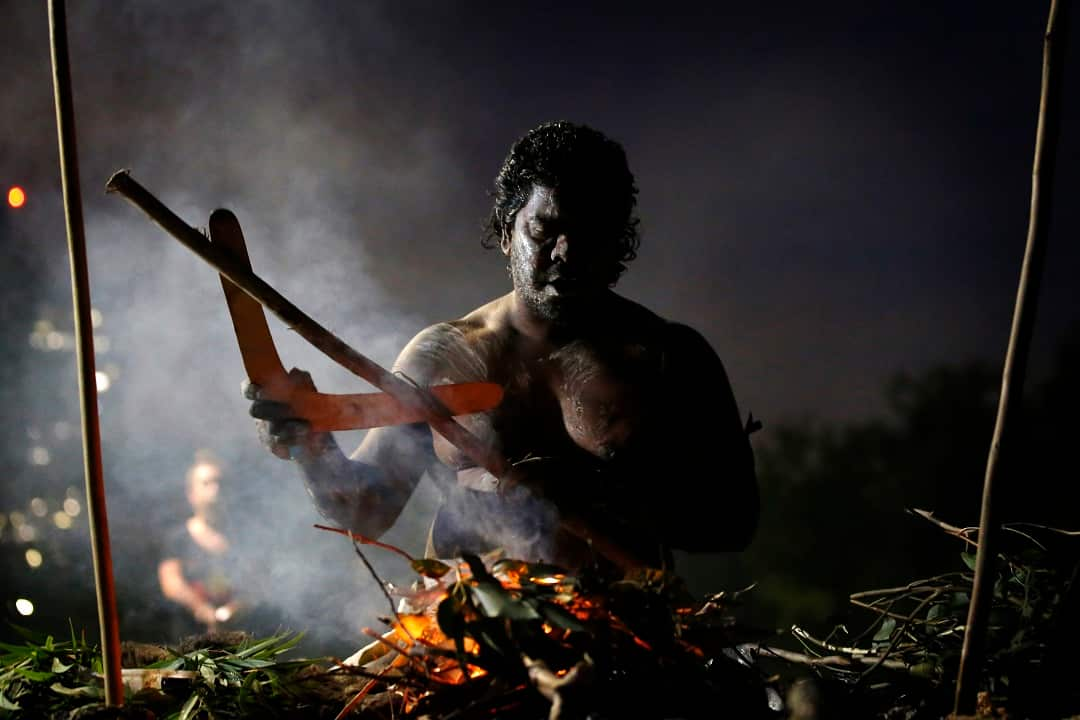
Commenting on the rallies, Prime Minister Scott Morrison said today was not "a day for crab walking away from our history."
"1788, 26 January for my ancestors was a pretty difficult day as well," he said.
"They came not by choice and in some pretty desperate circumstances."
Earlier, the day kicked off with a 5.30am dawn service in Melbourne, which saw up to a thousand people gathered at the Domain Resting Place, where the remains of 38 Indigenous people represent the thousands of Indigenous bodies taken for science or collections.
The service included a minute’s silence, a smoking and ochre ceremony and the reading out of massacre sites across the country. It was the first time an 'Invasion Day' dawn service had been held in the city.
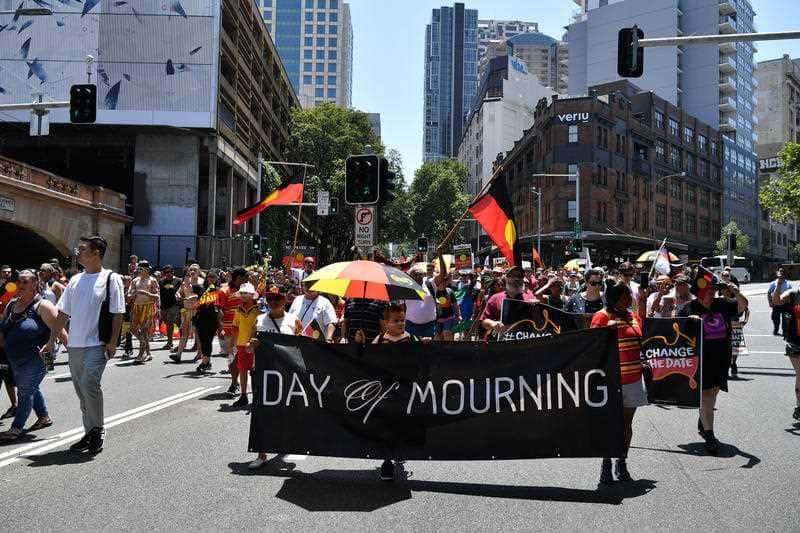
"It was quite an emotional ceremony and there were people from all parts of our society, all nationalities and people were heartfelt in terms of sharing what we call this day and that is a day of mourning," Gunnai-Kurnai and Gunditjmara woman and former Northcote MP Lidia Thorpe said.
In Sydney, the NSW government sponsored a WugulOra Morning Ceremony at Barangaroo, which was attended by the Premier. The event included a smoking ceremony and performances by First Nations artists.
Australia Day, a national public holiday, is currently held on the anniversary of the official declaration of British sovereignty on the land that would become Australia in 1788.
But over the past few years, there has been growing calls to change the date of the celebration to be more inclusive of Indigenous Australians, whom often view it as a day of mourning as the date marked the end of 50,000 years of Indigenous Australia.
It also was the beginning of colonisation in Australia, which saw massacres of First Nations people, stolen land and forced child removal and Indigenous assimilation - later known as the Stolen Generation.
The history of protest on Australia Day stretches back to 1938, when Indigenous people gathered in Sydney to mark a ‘Day of Mourning’ for the “callous treatment of our people by white men”. Fifty years later, on Australia’s bicentennial in 1988, tens of thousands of people marched in protest of white Australia.
Since then, support for changing the date has steadily grown as more and more people forgo traditional Australia Day celebrations.
With Myles Morgan, AAP

